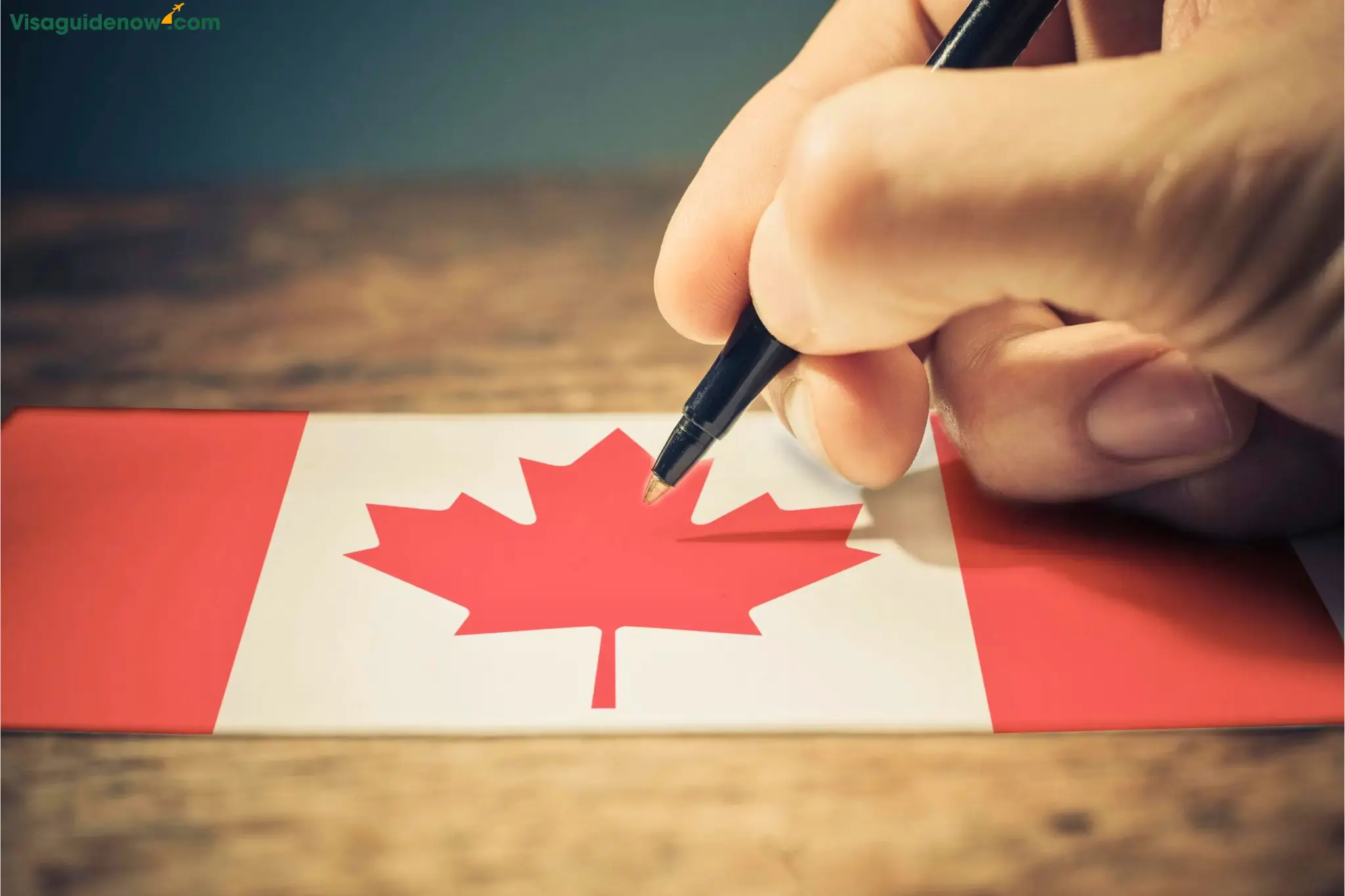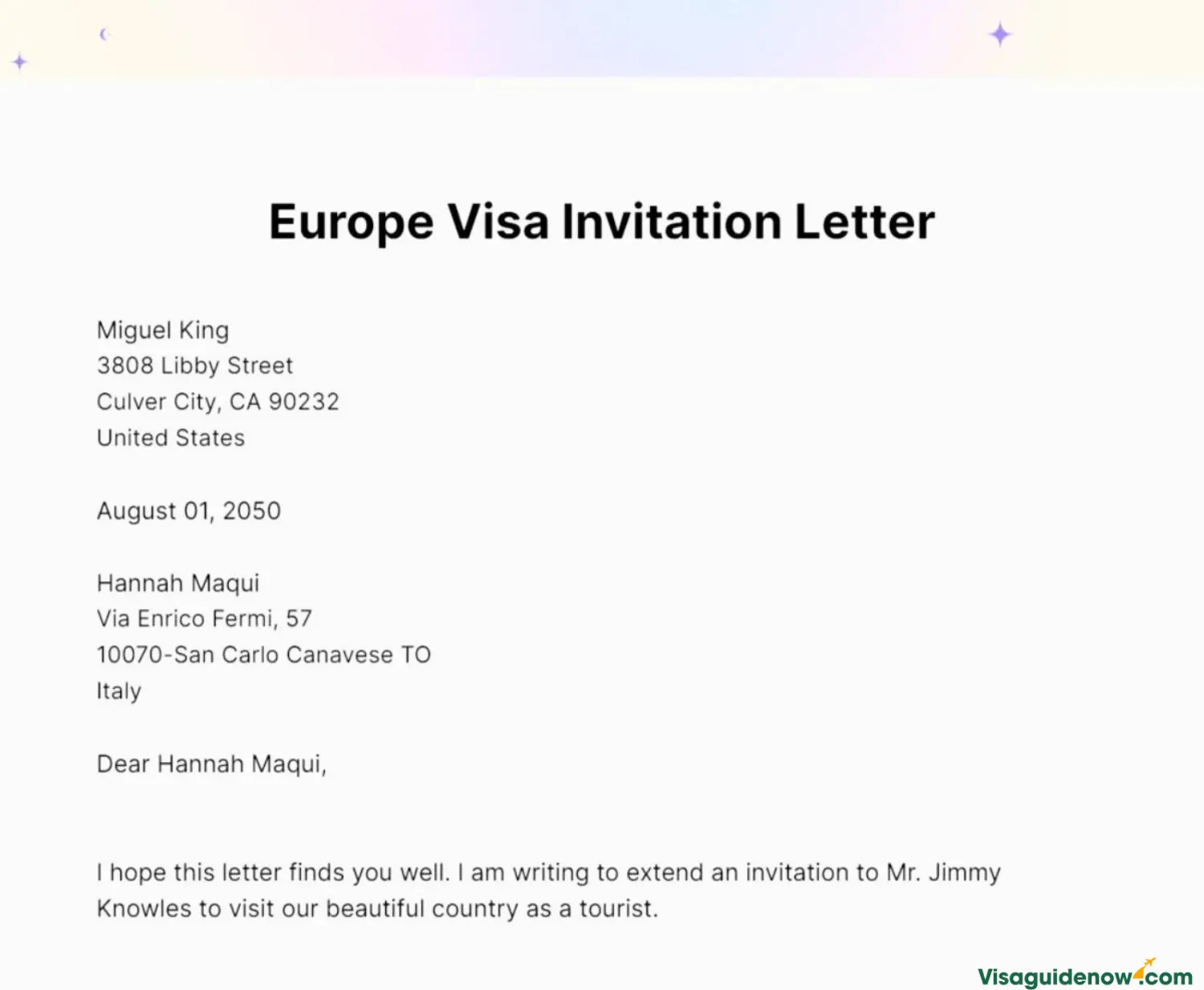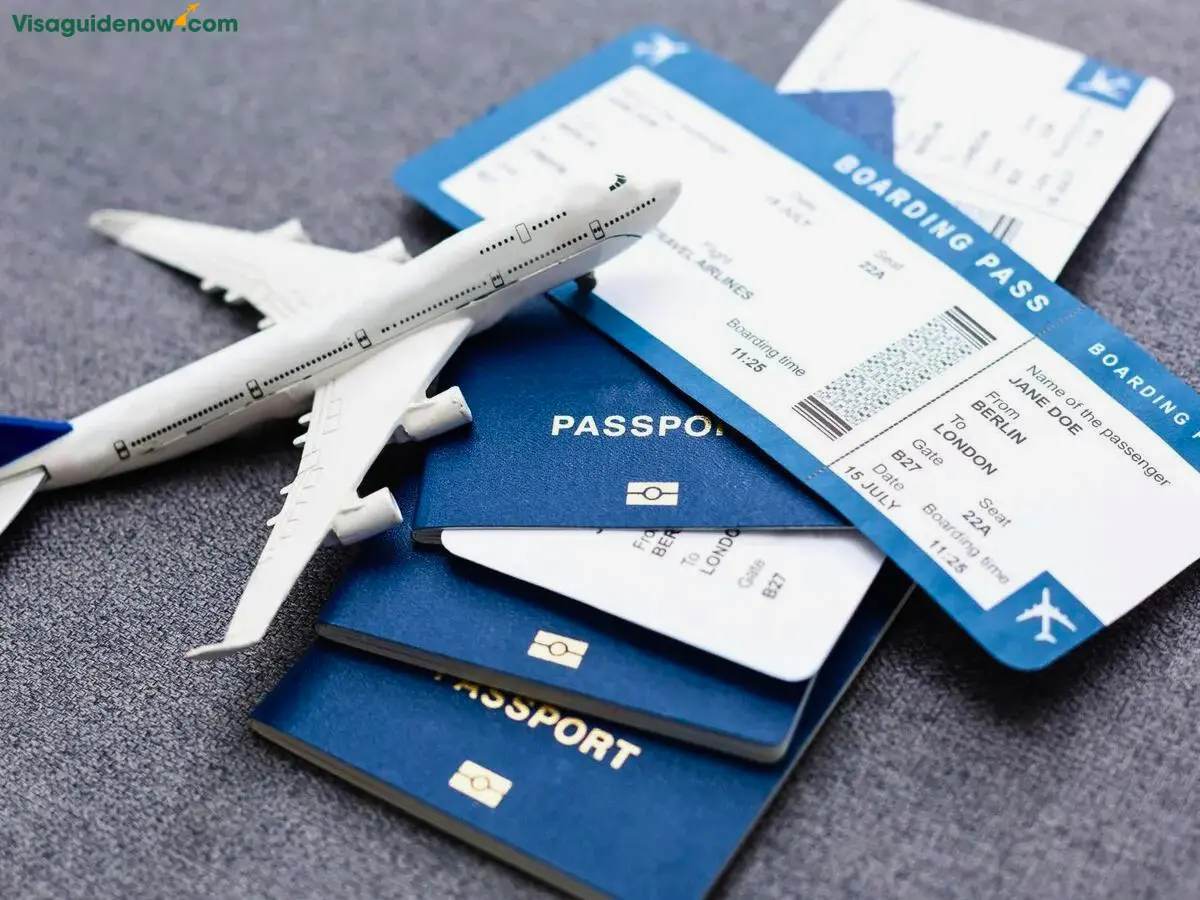Invitation Letter for visa application
Author:Tran Van Chung | 22/03/24
The visa invitation letter, a concept that might seem simple, plays a significant role in your visa application journey. When it comes to the necessary documents for a visa application, many people find themselves confused, especially those facing the process for the first time. If you have concerns related to the visa invitation letter, this article will decrypt all your questions and guide you step by step in detail.
What is an invitation letter for visa application?
In the visa application process, an invitation letter is not just an ordinary document; it’s a bridge between your dream of traveling, studying, or working and the country you wish to visit. Specifically, an invitation letter is a document that a visa applicant needs to submit to the consulate or embassy where they are applying for a visitor visa.

Written by the host (which can be a relative, friend, or business partner) in the country you plan to visit, this letter confirms that they will provide accommodation for you during your stay in that country. It serves not only as evidence of your travel purpose but also demonstrates the sincerity and relationship between you and your host, enhancing the persuasiveness of your visa application.
What are the requirements to write a letter of invitation?
Although an invitation letter is not always a mandatory requirement from the embassy or consulate, submitting one can increase the success rate of your application. Below are the basic requirements that need to be met when drafting an invitation letter:
- Citizenship or legal residency status: The inviter must be a citizen or legal resident of the country you intend to visit. This ensures that they have the legal rights and responsibilities to invite you to their country.
- Relationship with the invitee: The inviter needs to have a personal relationship with you, which can be a friend, partner, or family member/close relative. This relationship should be clearly stated in the letter to demonstrate that the trip’s purpose is legitimate and clear.
- Registered accommodation: The inviter must own or rent a place with a specific address that is legally registered, including homes, apartments. This proves their capability to provide accommodation for you during your stay.
- Adequate space for the guest: The inviter needs to prove that their accommodation has enough space to host you, ensuring a comfortable and convenient living situation during your stay.
How to write a letter of invitation for visa application?
The invitation letter clarifies the purpose of the trip and affirms the relationship between the inviter and the invitee. Below are the specific steps you need to follow to write an accurate and effective letter:
- Check the embassy’s invitation letter template: First, determine if the embassy has its own invitation letter template. If so, your task is simply to ask the inviter to fill in the necessary information on that template.
- Basic information of the inviter: In the letter, the inviter needs to include their full name, date of birth, contact address, phone number, occupation, type of housing (owned, rented house, apartment, room), and legal status in the residing country (work visa, study visa, permanent residency, citizenship, or other legal statuses).
- Basic information of the invitee: The letter must clearly state the invitee’s full name as per the international passport, date of birth, address and phone number, the relationship with the inviter, the purpose of the trip (visiting friends, tourism, attending a wedding, birthday party, etc.), as well as the expected entry and exit dates.
- Tone of the letter: If the letter is written directly to the invitee, keep the language warm and close rather than too formal. This helps the consulate get a more comprehensive and genuine view of the relationship between the inviter and the invitee.

Letter of invitation supporting documents
When submitting a visa application, attaching the invitation letter along with some supporting documents not only enhances the authenticity of your application but also shows your thorough preparation and seriousness about the trip. Although an invitation letter is not always a mandatory requirement of the embassy, submitting the following supporting documents along with it is a commendable action that will help increase the chances of success for your visa application:
- Copy of the inviter’s ID/passport: A scanned copy of the inviter’s ID or passport helps verify their identity and legal entitlements in the residing country.
- Proof of living means: If the inviter sponsors the guest throughout their stay, financial capability evidence is necessary, such as salary slips, insurance, or bank accounts.
- Proof of ownership or rental agreement: Documents proving ownership or rental contract of a house, apartment affirm that the inviter has suitable accommodation conditions for the guest during their stay.
- Planned visit schedule: A specific schedule of planned visits shows a clear plan and purpose for the trip.
- Inviter’s leave confirmation: If the inviter has taken leave to spend time with you, a document confirming this from their workplace will be advantageous, showing their preparation and commitment to your visit.
Where to submit the letter of invitation?
If you’re wondering where to submit the invitation letter when applying for a visa, the process is quite simple and straightforward. The invitation letter should be scanned by the inviter and sent to the invitee via email or another electronic means. Then, the invitee will print out the letter and submit it along with their visa application dossier at the embassy or consulate of the country they plan to visit.
This process ensures that the letter is reviewed along with other supporting documents during the visa application review process. It’s crucial that the invitation letter is prepared and sent correctly to avoid any delays in the review process. Make sure you have the invitation letter in hand before your appointment at the embassy or consulate, along with thorough preparation for other required documents.
Additionally, it’s important to carefully check the specific instructions of the embassy or consulate regarding the application process, as each agency may have different requirements and regulations. Adhering to these rules will help make your visa application process smooth and swift.







